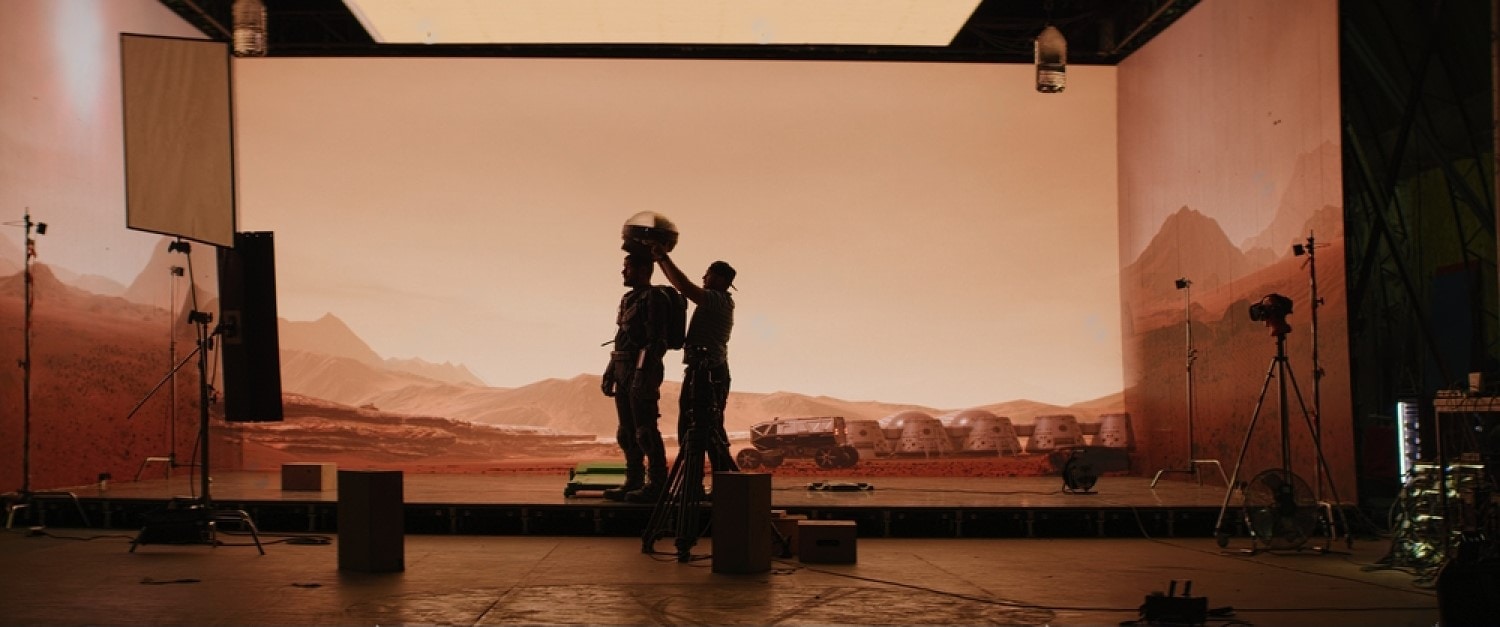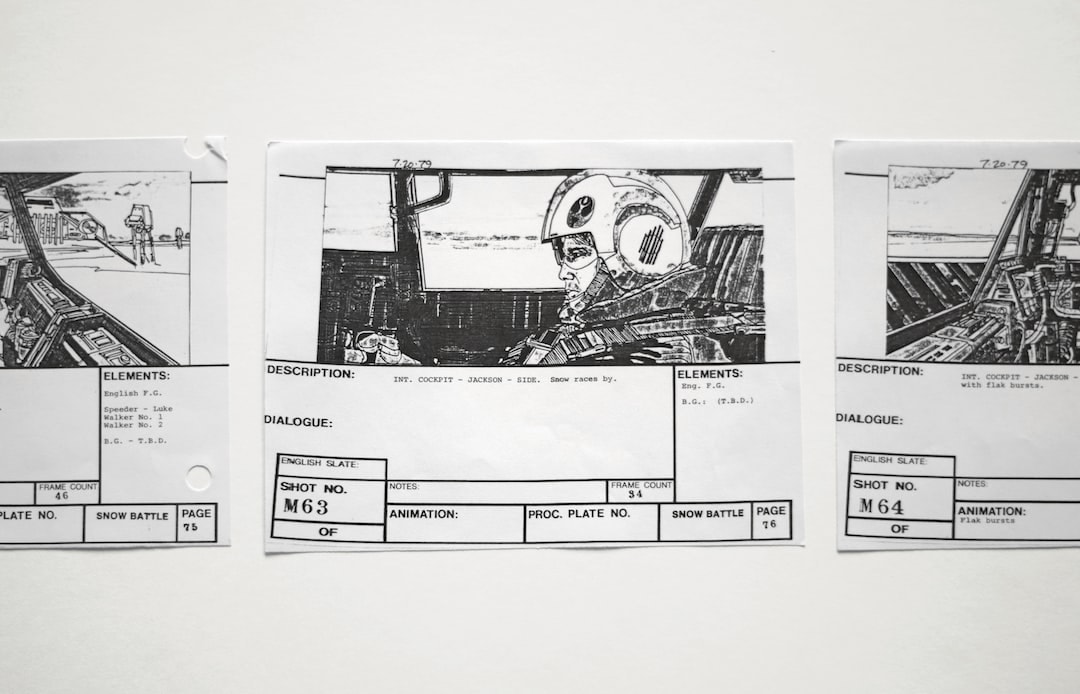VFX, or visual effects, is a rapidly growing and dynamic field that offers a wide range of career opportunities for artists and technicians. Visual effects, or VFX, involve the creation, manipulation, or enhancement of imagery for film or other moving media that cannot be captured through live-action filming. This includes integrating actual footage with computer-generated imagery to create realistic environments, whether they are dangerous to film in or do not exist.
VFX professionals use specialized software to achieve this and work closely with directors and cinematographers to determine which scenes require using green screens for VFX integration. Visual and special effects are different effects in film and other moving media. VFX is created using computers and is added in post-production, whereas SFX is created and executed during live-action filming, such as controlled explosions and fake injuries. If you’re interested in starting your career in VFX or want to know how to start career in VFX and becoming a top-class VFX artist, there are several steps you can take to get started.

Listed below are some of the starting steps for you to follow to start a career in VFX
Choose software
Many software options are available for VFX, and new updates are released regularly, making it difficult to know how to start career in VFX. However, it’s crucial to find software that you feel comfortable using. Try out the trial versions of different software options to see which best suits your needs. Blender is a popular choice for beginners as it is open-source and free software.
Self-Learning
To improve your VFX skills, it’s important to watch tutorials and practice what you learn. Start with basic effects such as fire, water, clouds, smoke, explosions, and lightning in both 2D and 3D. These are common tasks for VFX artists, and they aim to become familiar with them. The more you experiment and practice, the easier it will be to adapt and improve your skills. It’s recommended to begin with fundamental concepts such as colour theory, composition, and modelling before moving on to more specific techniques.
Enrol in a course
Getting a job at a top VFX company requires a solid resume and job-ready skills. While learning online tutorials can provide a basic understanding of VFX, a career-focused course will allow you to learn from experts and work in a studio-like environment. With the high level of competition in the field, training from a reputable animation and VFX institute can give you an edge and help you gain access to the industry.
Portfolio
Your portfolio is the gateway to your career in VFX. It should showcase a range of skills, including modeling, texturing, animation, and compositing, with a focus on your strongest work. Including breakdowns that reveal your process can also be highly effective in demonstrating your problem-solving abilities.
Learn coding
VFX artists who know to code are highly sought after by major studios. Coding can be beneficial for automating tasks that would otherwise take a long time to do manually. Python is the most commonly used coding language in the VFX industry, but you can also learn any other script. While coding is not a requirement for a career in VFX, it can give you an advantage over your peers.
Joining Professional Online Communities
Becoming part of professional online forums and social media groups can expand your network, provide access to industry insights, and open doors to mentorship and job opportunities.
Career opportunities in the VFX industry
- 3D Animator: 3D animators control digital objects, characters, and machines to move and interact within a digital or live-action environment based on the scenes outlined in a script, storyboard, or pre/postvis plan.
- Technical Director: The Technical Director, a representative from the sponsor company, acts as the technical liaison for the team, promoting the company’s interests, overseeing the team’s work, and facilitating technology transfer throughout the project.
- Compositor: Compositors play a crucial role in crafting realistic and convincing visual effects. They blend various layers of images, computer animation, and live-action footage into final images.
- Motion Graphics Artist: Motion graphic artists utilize animation, sound, and VFX to create dynamic graphics and content for media such as TV, the web, and movies.
- Lighting Artist: Lighting artists illuminate the scenes in animation. Similarly to live-action productions, a director of photography and gaffer determines lighting placement and choice.
- Concept Artist: Concept artists are designers who conceptualize and create artwork for characters, creatures, vehicles, environments, and other creative assets.
- Rigger: Riggers maneuver heavy materials and machinery on worksites with rigging equipment like pulleys, cranes, and winches. They set up temporary structures like scaffolding on construction sites and installed pre-cast facades.
- Texture Artist: Texture artists specialize in crafting the textures of 3D models. They must have a biological understanding of human and animal skin and expertise in textiles, geographical elements, architectural finishes, landscapes, etc.
- VFX Supervisor: VFX supervisors oversee the entire VFX project. They lead the VFX pipeline, including all VFX artists involved, and have final responsibility for all VFX elements produced by their company or studio for a project.
- Art Director: Art directors oversee the visual style and images in magazines, newspapers, product packaging, and media productions. They conceptualize the overall design for a project and guide others in creating artwork and layouts.
- Production Manager: Production managers plan and coordinate production schedules and manage the maintenance and repair of manufacturing equipment. Their leadership and expertise are crucial for the efficient, cost-effective, and safe production of high-quality goods.
- Pipeline Developer: Pipeline Developers design and build workflows and tools to streamline project production. They possess strong technical skills and software development expertise and are skilled communicators capable of bridging the gap between technical and non-technical team members.
- Visual Effects Coordinator: Visual Effects Coordinators manage a VFX project’s scheduling and smooth operation to ensure on-time delivery. They collaborate with all artists and communicate with clients for updates, requiring strong interpersonal skills.
- Matte Painter: Matte painting is a film technique that blends artwork with live-action footage to create the illusion of a location that is too costly, impractical, or impossible to film live. This is achieved by masking off part of the scene with black material, green screens, or digital cropping.
Frequently Asked Questions
Is VFX a stable career?
VFX can offer a secure career path for those with the right skills and background. The need for VFX in film, TV, video games, etc., is on the rise, presenting prospects for professionals in the domain. However, as with any entertainment career, stability in VFX can be impacted by advancements in technology, changes in audience trends, and economic situations. To maintain job stability, it is crucial to stay updated on industry advancements, enhance your abilities, and cultivate a robust professional network.
Is a career in animation and VFX good for the future?
A career in animation and VFX is a promising path, with growing demand for visually stunning effects in industries such as film, TV, gaming, and advertising. As technology improves and animated content gains popularity, the need for skilled professionals in the field is expected to grow. The VFX and animation industry is constantly evolving, with various career opportunities ranging from entry-level to senior creative positions. To succeed and secure a job, it’s essential to have relevant skills, experience, and the ability to adapt to industry changes.
Is it possible to make a career in VFX if I suck at sketching?
Success in a career in VFX doesn’t require exceptional sketching abilities. Many roles in the industry need to emphasize drawing skills. However, basic drawing skills can aid in visualizing and sharing ideas with a team. Successful careers in VFX are a comprehensive understanding of visual effects, proficiency in VFX software, and good teamwork skills.
Conclusion
The career in VFX and animation field is rapidly growing and becoming increasingly popular due to the many job opportunities, growth potential, and compensation. By pursuing a career in VFX and animation, you can earn a good salary while doing something you love. The salary for VFX and animation roles in India varies depending on the specific job you choose. The VFX and animation industry is expanding rapidly, and as a result, job opportunities are also increasing. A career in VFX can be both fulfilling and creatively rewarding. The demand for VFX professionals is at an all-time high, making now the perfect time to enter this lucrative and rewarding industry if you are passionate about movies and visual effects.












